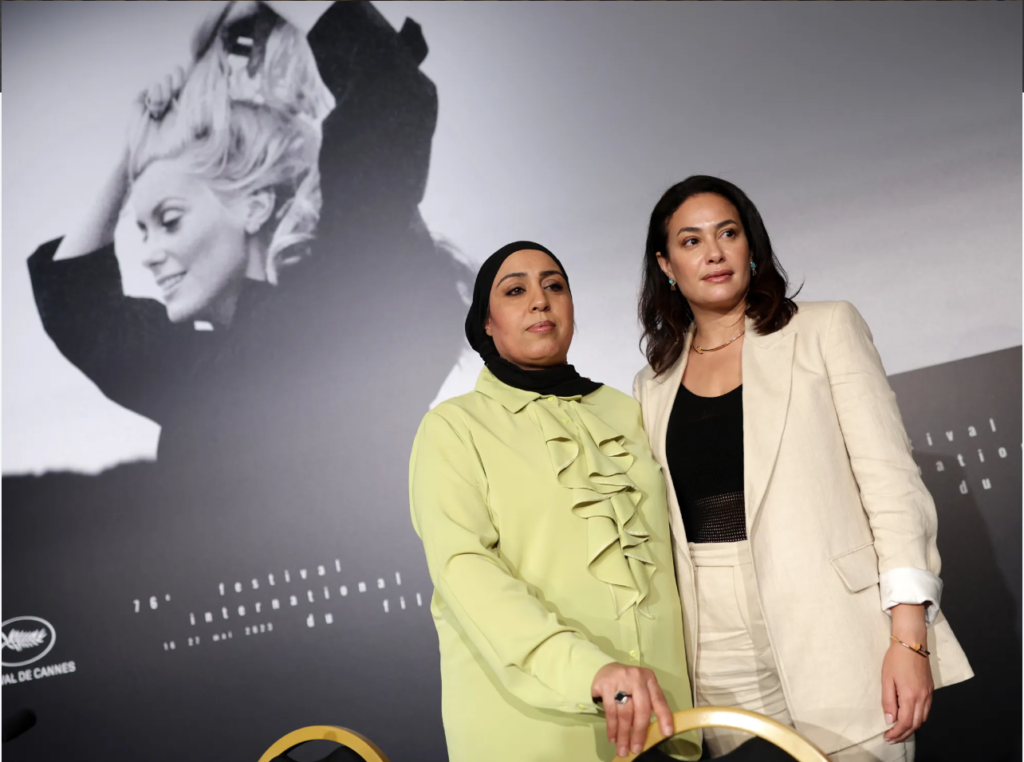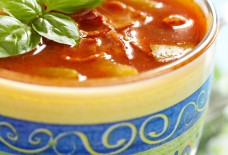How Arab Films Dominated “Un Certain Regard” Awards at Cannes Film Festival

Author: By Masha Lukovenko, Arab America Featured & Contributing Writer
Themes and genres were diverse among the Arab films that took part in the 76th Cannes Film Festival. They were a resounding and impressive presence during the tournament and other festival events. This year’s festival will have six feature films and three short films exhibited in various categories. Bold presentations and a direct approach to subjects that are taboo in Arab societies defined each of them. It appears that this was the main factor considered when selecting the flicks. Arab women’s suffering as well as the severe political and economic realities of these nations were among the topics they discussed.
In the official competition, only one Arab film was exhibited, namely Kaouther Ben Hania’s Four Daughters, directed by the Tunisian filmmaker. Ben Hania returned to the Cannes Film Festival following a six-year hiatus. She has previously taken part in the Un Certain Regard competition opening with her film Beauty and the Dogs. The preceding movie’s Arabic title, Ala Kaf Afreet, alludes to the extremely precarious state of affairs in that region of the world. The premise of this year’s movie, Four Daughters, blends a featured story with a documentary. It concerns Olfa Hamrouni, a Tunisian lady who gained notoriety in 2016 after she was seen in the media pleading with the government for assistance in rescuing her four daughters.
Arab films dominated half of the six awards of the “Un Certain Regard” competition. The Moroccan film Hounds by Kamal Lazraq was awarded the Un Certain Regard Jury Prize. The Moroccan director Asmae El Modir won Un Certain Regard Best Director for her film The Mother of All Lies. The Un Certain Regard Freedom Prize went to the Sudanese film Goodbye Julia by Mohamed Kordofani.
Debut feature film by director Lasraq is called Hounds. The movie is a brilliant epic, even with its darkness and cruelty. Lazraq choose Casablanca as the location for his one-day events. The movie’s characters were impoverished, desperate, and struggling to survive. Lazraq begins the movie with a scene of two vicious canines fighting. An eccentric man ends their fight by killing the dog in cold blood after they eat each other. The owner of the dog becomes enraged and resolves to do revenge. He consents to kidnap the dog’s killer together with Abdul Latif Al-Masstour’s character, Hassan, an unemployed man. Once the assignment is completed, Hassan kidnaps the man and kills him without hesitation.
After then, Hassan is given a new task: kidnapping a different man. With the assistance of his little son Issam (Ayoub Al-Eid), he completes this mission. They accidentally kill the kidnapped man and then argue about how to get rid of him. The father, Hassan, is adamant about following Islamic law when it comes to the burial rituals. To his small son, that would be needless futility; the body needs to be disposed of as soon as possible. The father’s duality, his apathy, and the little kid’s sense of oppression are all highlighted in the conversation between the father and son. Events intensify as they look for an appropriate location to dispose of the dead man. The film’s grueling conclusion is in line with cruelty of Arab world.
Lazraq unveils unknown secrets of the reality of life in Casablanca. Whole communities are living in desperate and violent circumstances as if being controlled by the devil. The film is written and directed by Kamal Lazraq and stars Abdelatif El Masstouri and Ayoub Elaid. It is co-produced by Morocco, France, Belgium, Qatar, and Saudi Arabia.
The first Sudanese film to be selected for the Cannes Film Festival is Goodbye Julia, which also happens to be the first feature film directed by Mohamed Kordofani. The director examines the causes and origins of South Sudan’s secession, as well as how racism and corruption helped spread the seeds of hatred among the nation’s citizens. Mona, a retired singer married to a prosperous Northern guy, is the focal point of the events. Mona accidentally drives a small boy over with her automobile. His father goes with her to her home, where her affluent husband murders him.
The husband uses his social influence to frame the case as one of self-defense, but Mona feels bad and takes care of the victim’s family. After assisting his widow Julia, she gives her and the child refuge after they are kicked out of their home and even employs Julia as a servant. Mona and her spouse provide the child with love, nurturing, and education. Following the Southern uprising, a youthful rebel from the region develops feelings for Julia and exposes Mona’s transgression, ultimately causing Julia and Mona to drift apart.
Check out Arab America’s blog here!



